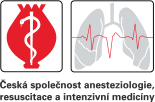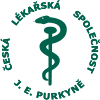Anest. intenziv. Med. 2009;20(2):96-101
Hypocholesterolaemia on the medical intensive care unit: The process of cholesterol synthesis and absorption is altered in the acute phase of diseaseIntensive Care Medicine - Original Paper
- 1 Interní klinika, Fakultní nemocnice Ostrava
- 2 Lékařská fakulta, Univerzita Karlova, Hradec Králové
Objective:
Hypocholesterolaemia has been described as a common feature in patients with acute disease and is associated with poor prognosis. By using cholesterol synthesis (lathosterol, squalene) and absorption (sitosterol, campesterol) markers it is possible to determine the changes in both the processes of cholesterol acquisition. The aim of this study is to describe the changes of cholesterol metabolism in patients with acute medical disease.
Design:
Prospective study.
Setting:
Department of Medicine, Teaching Hospital.
Materials and methods:
The study included 60 patients with acute medical disease solely on artificial nutrition. Plasma concentrations of total cholesterol, HDL and LDL cholesterol were measured on days 0, 3 and 7. Lathosterol, squalene, sitosterol and campesterol concentrations were determined on days 3 and 7. The metabolic parameters were compared with a control group.
Results:
We detected a statistically significant decrease in total cholesterol concentration, and lower plasma levels of LDL and HDL cholesterol. A statistically significant decrease in lathosterol and campesterol plasma levels was detected. Sitosterol concentrations were lower but not significantly. The concentration of squalene was noted to be higher than in the control group.
Conclusion:
Our results show abnormalities in the cholesterol metabolism, including both arms of the cholesterol acquisition process, in patients with acute medical disease.
Keywords: lipids; cholesterol; hypocholesterolemia; non-cholesterol steroids
Received: October 6, 2008; Accepted: January 20, 2009; Published: April 1, 2009 Show citation
| ACS | AIP | APA | ASA | Harvard | Chicago | Chicago Notes | IEEE | ISO690 | MLA | NLM | Turabian | Vancouver |
References
- Giovannini, I., Chiarla, C., Giuliante, F., Vellone, M., Zadák, Z., Nuzzo, G. Hypocholesterolemia in surgical trauma, sepsis, other acute conditions and critical illness. In Kramer, M. A. Trends in cholesterol research. Nova Biomedical 2005, p. 137-161. ISBN 1-59454-378-X.
- Vanni, H. E., Gordon, B. R., Levine, D. M., Sloan, B. J., Stein, D. R., Yurt, R. W. et al. Cholesterol and interleukin-6 concentrations relate to outcomes in burn-injured patients. J. Burn Care Rehabil., 2003, 24, p. 133-141.
 Go to original source...
Go to original source...  Go to PubMed...
Go to PubMed... - Tsinparlis, G., Chatzipanagiotou, S., Boufidou, F., Kordinas, V., Alevyzaki, F., Zoga, M. et al. Release of interleukin-6 and its soluble receptors by activated peripheral blood monocytes is elevated in hypocholesterolemic hemodialysis patients. Am. J. Nefrol., 2005, 25, p. 484-490.
 Go to original source...
Go to original source...  Go to PubMed...
Go to PubMed... - Bakalář, B., Zadák, Z., Pachl, J., Hyšpler, R., Crhová, Š., Karásek, J., Čapek, V. Severe hypocholesterolemia is associated with adrenal insufficiency in multiple trauma patients. Int. Care Med., 2001, 27, p. S253-S253.
 Go to original source...
Go to original source... - Van der Voort, P. H. J., Gerritsen, R. T., Bakker, A. J., Boerma, E. C., Kuiper, M. A., deHeide, L. HDL-cholesterol level and cortisol response to synacthen in critically ill patients. Int. Care Med., 2003, 29, p. 2199-2203.
 Go to original source...
Go to original source...  Go to PubMed...
Go to PubMed... - Akgün, S., Ertel, N. H., Mosenthal, A., Oser, W. Postsurgical reduction of serum lipoproteins: interleucin-6 and acute-phase response. J. Lab. Clin. Med., 1998, 131, 1, p. 103-108.
 Go to original source...
Go to original source...  Go to PubMed...
Go to PubMed... - Giovannini, I., Chiarla, C., Greco, F. et al. Characterization of biochemical and clinical correlates of hypocholesterolemia after hepatectomy. Clin. Chemistry, 2003, 49, p. 317-320.
 Go to original source...
Go to original source...  Go to PubMed...
Go to PubMed... - Coombes, E. J., Shakespeare, P. G., Batstone, G. F. Lipoprotein changes after burn injury in man. J. Trauma, 1980, 20, p. 971-975.
 Go to original source...
Go to original source...  Go to PubMed...
Go to PubMed... - Kuksis, A. Plasma non-cholesterol sterols. J. Chromatogr., 2001, 935, p. 203-236.
 Go to original source...
Go to original source...  Go to PubMed...
Go to PubMed... - Gui, D., Spada, P. L., De Gaetano, A. et al. Hypocholesterolemia and risk of death in critically ill surgical patient. Int. Care Med., 1996, 22, p. 790-794.
 Go to original source...
Go to original source...  Go to PubMed...
Go to PubMed... - Schatz, I. J., Masaki, K., Yano, K. et al. Cholesterol and all-cause mortality in elderly people from Honolulu Heart Program: A cohort study. Lancet, 2001, 358, p. 351-355.
 Go to original source...
Go to original source...  Go to PubMed...
Go to PubMed... - Hudgins, L. C., Parker, T. S., Levine, D. M., Gordon, B. R., Saal, S. D., Jiang, X. et al. A single intravenous dose of endotoxin rapidly alters serum lipoproteins and lipid transfer proteins in normal volunteers. J. Lipid Research, 2003, 44, p. 1489-1498.
 Go to original source...
Go to original source...  Go to PubMed...
Go to PubMed... - McDonald, M. C., Dhadly, P., Cockerill, G. W., Cuzzocrea, S., Mota-Filipe, H., Hinds, C. J. et al. Reconstituted high-density lipoprotein attenuates organ injury and adhesion molecule expression on a rodent model of endotoxic shock. Shock, 2003, 20, p. 551-557.
 Go to original source...
Go to original source...  Go to PubMed...
Go to PubMed... - Gordon, B. R., Parker, T. S., Levine, D. M., Feuerbach, F., Saal, S. D., Sloan, B. J. et al. Neutralization of endotoxin by a phospholipid emulsion in healthy volunteers. J. Infect. Dis., 2005, 191, p. 1515-1522.
 Go to original source...
Go to original source...  Go to PubMed...
Go to PubMed... - Levels, J. H. M., Marquart, J. A., Abraham, P. R., van den Ende, A. E., Molhuizen, H. O. F., van Deventer, S. J. H., Meijers, J. C. M. Lipopolysaccharide is transfered from high-density to low-density lipoproteins by lopopolysaccharide-binding protein and phospholipid transfer protein. Infect. Immun., 2005, 73, p. 2321-2326.
 Go to original source...
Go to original source...  Go to PubMed...
Go to PubMed... - von Erckardstein, A., Hersberger, M., Rohrer, L. Current understanding of the metabolism and biological actions of HDL. Cur. Opin. Clin. Nutr. Metab. Care, 2005, 8, p. 147-152.
 Go to original source...
Go to original source...  Go to PubMed...
Go to PubMed... - Zadák, Z., Hyšpler, R., Havel, E. et al. Changes in metabolism of cholesterol and its precursors in critical patients on total parenteral nutrition. Nutrition, 2002, 18, p. 214.
- Druml, W., Fischer, M. Cholesterol improves the utilization of parenteral lipid emulsion. Wien Klin Wochenschr, 2003, 115, p. 767-774.
 Go to original source...
Go to original source...  Go to PubMed...
Go to PubMed... - Ney, D. M., Yang, H., River, J., Lasekan, J. B. Total parenteral nutrition containing medium vs. long chain triglyceride emulsions elevates plasma cholesterol concentrations in rats. J. Nutr., 1993, 123, p. 883-892.
 Go to original source...
Go to original source...  Go to PubMed...
Go to PubMed... - Bakalář, B., Zadák, Z., Pachl, J., Hyšpler, R., Pažout, J. Změny v metabolismu cholesterolu v prvních dnech po závažném traumatu. Anest. neodklad. Péče, 2002, 13, p. 10-11.
- Havel, E., Sobotka, L., Bláha, V., Maňák, J., Solichová, D., Hyšpler, R., Zadák, Z. Vliv zahájení enterální výživy na zvýšení hladin HDL. Abstract in: Zadák, Z. Nutriční a metabolická podpora u kritických stavů a orgánového selhání. Losenický: Nové Město nad Metují, 2001, p. 19-21.





